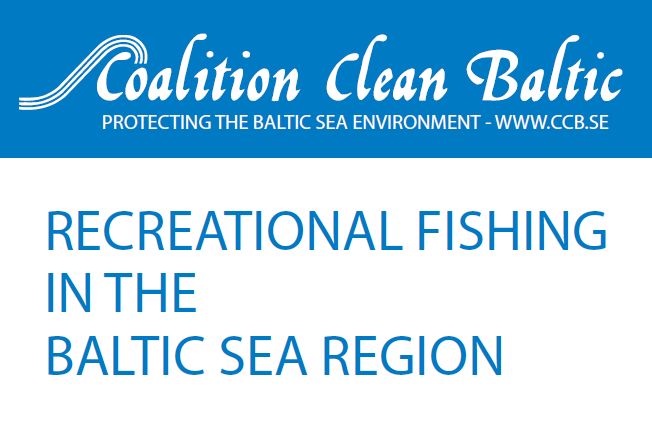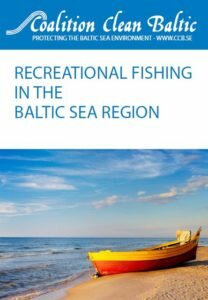Coalition Clean Baltic (CCB) released a report on recreational fishing in the Baltic Sea region, compiling existing data, information about national rules, monitoring and control to form an information baseline since recreational fishing is in the spotlight, and few have an overview of how it is carried out in other countries, target species and the impacts on stocks are asked for and debated more and more, as well as data collection and control issues are discussed in a range of fora. The report provides an overview of the angling sector, covering a number of aspects related to recreational fisheries in the Baltic Sea region.
From the report’s introduction: “In the current debate, there have been attempts to blame the recreational sector for the demise of some fish stocks. We have attempted to investigate if that can be the case, not with the intention to shift focus away from unsustainable commercial operations and fishing quotas set above scientific recommendations, but simply to enable a more informed debate.
In addition, we cannot just assume that recreational fishing is not having an impact on the marine environment in a wider context (not just catches and the direct impact on fish stocks), including noise (sonars, and engines), CO2, lost gears, lures and sinkers and littering. Overall, we need to know more in order to know where improvements can be made, or if regulations and harmonisation are needed.
Finally, the recreational fishing sector needs to be better recognised in terms of its socio-economic importance in many countries and should have a given right, as well as responsibilities, to be a part of management discussions and decisions. It is a subsector of substantial financial importance; in many countries of greater financial importance than the commercial fisheries sector. Many angler groups also engage in habitat restoration and control efforts”.
The “Recreational fishing in the Baltic Sea region” report can be downloaded here.


